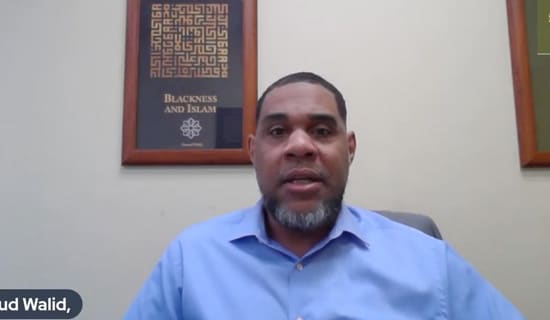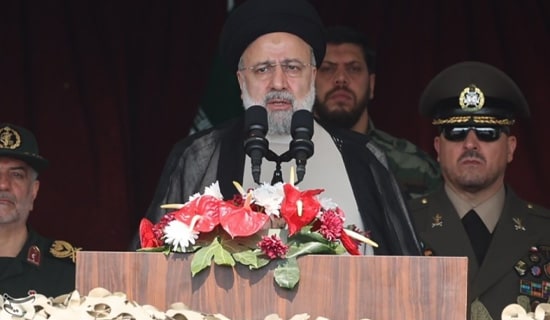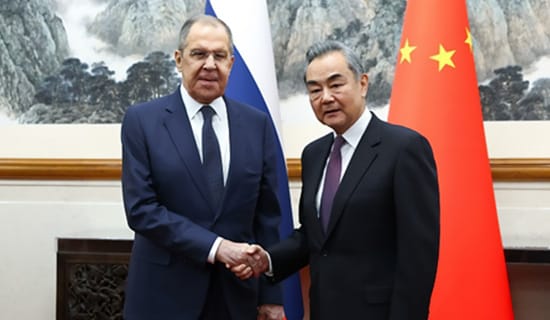Following oppressive measures launched against reformist factions in Iran's Majlis by the conservative judiciary branch, the reformists issued a statement warning of Iran's deteriorating political and social situation. 151 Majlis members signed yet another statement - a 'Letter to the Nation' - warning of the consequences of the conservatives' oppressive policy.
The upsurge in the persecution of reformist activists and the closure of dozens of newspapers known for their support of reform have led the leaders of Iran's Islamic Participation Front (IIPF), the country's largest reformist faction, to announce that if the public call for political, economic, and social reform went unheeded, they would consider the regime illegitimate, and it would then "either come down or turn into a dictatorship."
Two prominent figures in the reformist camp, Mohammad Reza Khatami, the brother of President Mohammad Khatami, and IIPF Secretary-General, Majlis member, and IIPF Central Committee member 'Abbas 'Abdi, declared that if reforms were not implemented the reformists would resign from the Majlis, where they constitute a majority. The reformist leaders also called to reconsider Iran's relations with the U.S. and to act in Iran's interests, rather than in accordance with the regime's traditionally anti-U.S. ideology.
In response to the reformist protest campaign, the conservatives launched a counter-offensive, accusing the reformists of undermining the Islamic regime, collaborating with foreign elements, and being disloyal to Islam. The conservatives also warned that they might declare a state of emergency in the country.
The Reformists’ Campaign: Five Main Points Which Might Lead to a Regime Collapse
I. The Regime is Losing Its Legitimacy
At the conclusion of the IIPF's Third Congress in July 2002, 'Abbas 'Abdi reviewed Iran's current crises. The most important of these, he claimed, is "the [regime's] legitimacy crisis, [losing the public's] trust."[1]
Mohammad Reza Khatami added, "The gap between the rulers and the people is widening… This is a situation of double rule, which is ideal for the conservatives."[2] Elaborating, Khatami explained, "After we use all our abilities and means and reach the conclusion that we can no longer run state affairs... we will abandon the scene, and then [the conservatives] will be held accountable [to the people]."[3]
Majlis deputy speaker and prominent reformist Behzad Nabavi warned the opponents of reform: "[They] should realize that they cannot run the country with only 20% of the votes, and they cannot rely on [blaming] foreign powers [for domestic problems]. They should also know that they cannot resort to arrests and violence in order to rule." Concurring with the reformists' threat to quit, Nabavi added: "Indeed, [the conservatives] have not succeeded in dismissing us from the government, but the current situation is no better than quitting it."[4]
II. The Conservatives Block Reforms
'Abdi claimed that the process of reform is "slow and frustrating… The [conservatives'] continued effort [to block the reformers] cannot go on, and those who oppose the reforms should [realize] that there is no way of reversing the situation in their favor… It should be clear that the reforms are the will of the people, and urgent action is needed." 'Abdi criticized the reformists too for adopting a "[too] moderate policy in their demand for reforms."[5]
Addressing the Majlis session,reformist member Rajabali Mazrouie criticized the conservatives: "Continuing the reforms is the only way to overcome the current crisis…," and went on to criticize "the narrow-mindedness of some, who do not understand domestic and global developments. The Guardians Council's repeated refusal to ratify Majlis legislation has no outcome other than showing how inefficient the system is… Economic progress comes [only] with political and cultural development."[6]
Referring to those opposed to reform, Majlis deputyspeaker Behzad Nabavi declared that the reform movement would not be stopped: "We will stand firm to the end and press for reforms until victory."[7]
The reformist daily Tose'e alsoaddressed the issue: "Rightists assume that by halting the reforms, they can regain their lost popularity. However, they are utterly wrong; the reforms were… the driving force behind people's massive turnout in the 1997 presidential elections, which initiated the reform movement. Iranians have made it clear on various occasions that they will no longer entrust state affairs to members of the rightist camp. Conservatives need to recognize public rights and demands. They must admit their mistakes and correct their policies."[8]
III. Growing Crisis in People's Religious Belief
'Abdi addressed the growing crisis of "religious values" in Iran's religious society. He complained that the institutions of the regime and religious institutions are so closely linked that "religion is disseminated by the regime's institutions." The clerics wished to "reform the political institutions," said 'Abdi, "but [instead] they were absorbed by the political institutions… In no era in Iran's history have the nation's problems been attributed to the clerics as they are today."[9] "The call for separating religion from state," he stated, "is being heard now among students more than ever before."[10]
SUPPORT OUR WORK

IV. Controversy over Iran-U.S. Relations
Mohammad Reza Khatami, called for changing Iran's foreign policy with regard to the U.S. to one based on Iran's interests. He criticized the conservatives, who, he said, "need an external enemy in order to preserve internal cohesiveness. [Our] foreign policy should be determined according to our national [domestic] policy objectives… and should comply with the constitution."[11]
Reza Khatami said that in the past, Iran-U.S. relations had been "murky and complex, but our national interests cannot be based on the past. Today, the common attitude… regarding Iran's policy towards the U.S. is influenced mainly by emotions." Khatami added that based on the ideas of his brother, the President, such as "dialogue between civilizations" and "coalition for peace," "Iran can maintain relations with all nations except Israel."
Reza Khatami said that the U.S. should respect Iran's independence, and should not interfere in Iran's domestic affairs. He claimed that the first step should be putting an end to the [current] crisis [in Iran-U.S. relations] and establishing a détente. In the long run, priority should be given to confidence-building measures. He also called to pay attention to American politicians who reject "the warmongering [policy] and the American administration's violent methods.It is essential that the U.S. abandon its 'axis of evil' policy; only then can we discuss détente."[12]
A survey of Tehran residents on Iran-U.S. relations that was published in September 2002 showed that 75% of those questioned, expressed support for talks with the U.S.; 65% supported renewing Iran-U.S. relations; and 68.5% believed that talks with the U.S. would not be humiliating for Iranians. However, 70% stated that they did not consider the American administration to be reliable.[13]
Following the survey's publication, the Judiciary shut down all three governmental institutes that had conducted the survey at the request of the Majlis and arrested their heads. One of these was 'Abbas 'Abdi, who is also a director of the Ayandeh research institute.[14] Another was former deputy minister of culture and Islamic guidance Ahmad Bourqani, who, in his capacity, was responsible for the institutes. Action was also taken against the director of the Islamic Republic News Agency (IRNA), which published the survey.[15]
V. Conservatives' (Judiciary's) Enhanced Oppression
151 Majlis members signed an open letter, read by reformist Majlis member Mohammad Naimipour, condemning the conservatives' oppressive measures: the closure of more than 70 reformist newspapers over the past three years; the ruling against prominent Majlis member and owner of the reformist paper Norouz (shut down July 2002) Mohsen Mirdamadi; the dissolution of the Freedom Movement (Nehzat-e Azadi) and the prison sentences, of up to 20 years, handed down against dozens of its members; and the arrest of writer Siamak Pourzand, 71, for "acting in favor of the U.S. and undermining the Islamic regime…" "In democratic systems," the letter read, "the judiciary is entrusted with the mission of protecting civil rights. However, in Iran the attorney general is the main force behind the closure of daily newspapers."[16]
The reformist Majlis members complained about the suppression of political freedom, which is in stark contrast to the false image created by the conservatives in the August 2002 meetings with the European parliament delegation that visited Iran: "In recent negotiations between the Majlis National Security and Foreign Policy Commission members and the European Union's high ranking delegation, a [false] impression was created that it is legal in Iran to criticize the status quo within the boundaries of the rule of law… The European delegation was convinced that freedom of expression prevails in Iran. But how could the dissolution of the Freedom Movement of Iran be justified?"[17]
'Abbas 'Abdi maintained that the oppressive measures were aimed at silencing reformist members lest they "follow [the fate of those already prosecuted]." He warned that "Neither a party nor a thought will ever disappear [as a result of oppressive measures]."[18]
In response, Judiciary spokesman Hossein Mir-Mohammad Sadeqi stuck to the formal argument that Judiciary verdicts should be respected without question: "Surprisingly, the reformists' statement calls several judicial verdicts an action against national solidarity, whereas worldwide the judge's independence is respected by all legal systems."[19]
*Ayelet Savyon is Director of the Iranian Media Project.
[2] Iran, July 28, 2002. "Double rule" refers to Iran's political structure. The Majlis, which has a reformist majority, is elected by the people, whereas the conservatives, such as Supreme Leader Ali Khamenei and those in the highest posts of the Judiciary are appointed by the conservative establishment, and hold the real power in the country. While the conservatives express pride in the country's democratic process, they constitute a parallel authority that overrules it.
[3] Iran Daily, August 21, 2002. Mohammad Reza Khatami elaborated on the Majlis's functioning, saying, "The least that the Majlis has done is block undemocratic moves, which in itself is a great accomplishment."
[6] Hayat-e No, August 5, 2002.
[8] Tose'e, cited in Iran Daily, August 25, 2002.
[10] The call for separating religion from state has already been heard in Iran, but fearing it, the regime acted harshly against those supporting it. Ayatollah Montazari is under house arrest since 1996; Political activist Dr. Hashem Aghajeri, who claimed recently that separating religion from the state is the only solution for Iran's social problems, is now standing trial for offending the regime.
[11] Iran, July 28, 2002; Aftab-e Yazd, July 28, 2002.
[12] It should be mentioned that since President Bush's July declaration supporting the Iranian students, most reformists have been cautious not to side with the U.S., and have made sure to criticize the American "aggressive tendencies."
[13] Hayat-e No, September 23, 2002.
[15] Iran Daily, October 27, 2002; IRNA, October 1, October 2, 2002; IRNA, November 1, 2002.
[16] Hayat-e No, August 5, 2002; Iran Daily, August 5, 2002.
[17] Hayat-e No, August 5, 2002; Iran Daily, August 5, 2002. Recently, the EU decided not to table a resolution criticizing the human rights situation in Iran in the current UN General Assembly's Third Committee, as Danish Foreign Minister Per Stig Moeller said, on the grounds of "helping the reformists in Iran. They are the majority in the country. So we will give dialogue a chance." IRNA, October 21, 2002.
[18] Aftab-e Yazd (Farsi); Iran Daily, August 1, 2002.
[19] Resalat (Farsi), August 6, 2002; Iran Daily, August 6, 2002.




